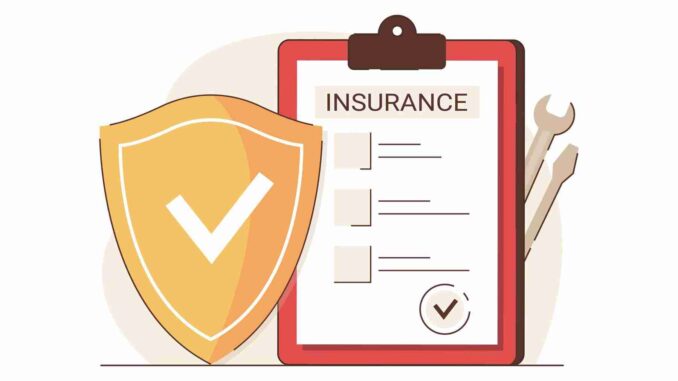
Introduction
Insurance is a financial safety net that plays a critical role in our lives. Whether it’s protecting our health, property, or financial future, insurance provides peace of mind by covering unforeseen risks and uncertainties. However, the insurance landscape can be complex and daunting, with a multitude of insurance types available. In this comprehensive guide, we will navigate the insurance maze, explaining the key types of insurance, their importance, and how to make informed decisions to safeguard your well-being and assets.
- Health Insurance
Health insurance is perhaps one of the most crucial types of insurance, as it ensures access to medical care when needed. Here are the key aspects of health insurance:
- Types of Health Insurance: Health insurance can take various forms, including employer-sponsored plans, individual policies, government programs like Medicare and Medicaid, and more.
- Coverage: Health insurance covers medical expenses, including doctor visits, hospital stays, prescription drugs, preventive care, and more. The level of coverage can vary based on the policy and provider.
- Importance: Health insurance helps individuals and families manage healthcare costs, ensuring they can receive necessary medical treatment without facing crippling expenses.
- Choosing a Plan: When selecting a health insurance plan, consider factors such as premiums, deductibles, co-pays, network providers, and coverage limits. Assess your healthcare needs and budget to make an informed choice.
- Auto Insurance
Auto insurance is a legal requirement in most places, designed to protect drivers and their vehicles in case of accidents or damage. Here’s what you need to know about auto insurance:
- Types of Auto Insurance: Auto insurance typically includes liability coverage, collision coverage, comprehensive coverage, uninsured/underinsured motorist coverage, and more.
- Coverage: Auto insurance covers damages to your vehicle, injuries to yourself and others, and liability for damage or injury caused to others.
- Importance: Auto insurance provides financial protection in accidents, reduces personal liability, and helps repair or replace your vehicle if it is damaged or stolen.
- Choosing a Policy: Factors like the type of vehicle you own, your driving history, and state requirements influence the choice of auto insurance. Compare quotes and coverage options to find the best fit.
- Homeowners/Renters Insurance
Homeowners and renters insurance protect your residence and belongings from damage, theft, or other unexpected events. Key points to understand about these types of insurance include:
- Types of Coverage: Homeowners insurance covers the structure of the home and personal property, while renters insurance covers personal belongings but not the structure.
- Coverage: Both homeowners and renters insurance protect against perils like fire, theft, vandalism, and liability for injuries on your property.
- Importance: Homeowners insurance is often required by mortgage lenders, and renters insurance is highly recommended for tenants. Both policies offer financial protection for property and liability.
- Choosing a Policy: Consider factors such as location, property value, personal belongings, and coverage limits when selecting homeowners or renters insurance. Tailor the policy to your specific needs.
- Life Insurance
Life insurance provides financial support to your loved ones in the event of your passing. Understanding life insurance is essential for long-term financial planning:
- Types of Life Insurance: Life insurance comes in various forms, including term life, whole life, and universal life insurance.
- Coverage: Life insurance pays out a death benefit to beneficiaries upon the policyholder’s death. This benefit can help cover funeral expenses, replace lost income, pay off debts, and secure the financial future of loved ones.
- Importance: Life insurance offers peace of mind, ensuring that your family is financially protected in your absence. It is particularly important for breadwinners and those with dependents.
- Choosing a Policy: Assess your financial obligations, family needs, and long-term goals to determine the type and amount of life insurance coverage required. Work with a financial advisor if necessary.
- Disability Insurance
Disability insurance provides income replacement if you become unable to work due to illness or injury. Here’s what you should know:
- Types of Coverage: Disability insurance can be short-term or long-term, and it may be offered through employers or purchased individually.
- Coverage: Disability insurance replaces a portion of your income if you are unable to work due to a covered disability. It helps you maintain your standard of living during a period of incapacity.
- Importance: Disability insurance protects your financial stability by ensuring that you have a source of income if you cannot work due to a disability.
- Choosing a Policy: Consider your existing financial commitments, savings, and employer benefits when deciding on disability insurance coverage. Understand the waiting periods, benefit periods, and policy details.
Leave a Reply